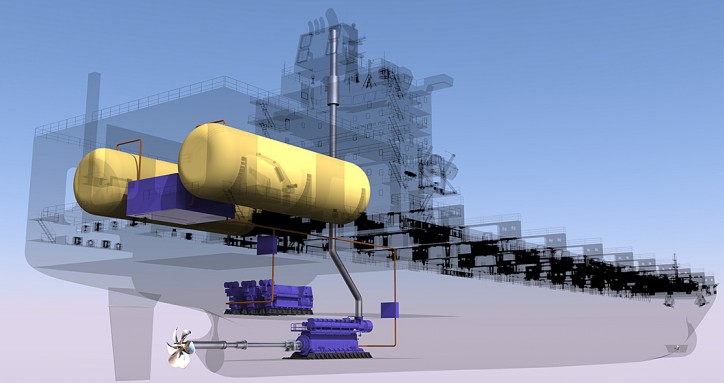 Expectations are that the IMO will adopt the new mandatory IGF Code regarding gas-fuelled vessels at the Maritime Safety Committee (MSC) meeting that is scheduled to take place from June 3rd to June 12th in London.
Expectations are that the IMO will adopt the new mandatory IGF Code regarding gas-fuelled vessels at the Maritime Safety Committee (MSC) meeting that is scheduled to take place from June 3rd to June 12th in London.
The IGF Code is going to be providing mandatory provisions regarding the arrangement and the subsequent installation and control process for the machinery, equipment and all systems employing the use of low-flashpoint fuels, while initially placing focus on liquefied natural gas (LNG).
Given the fact that LNG is a fuel that demonstrates lower emission levels than fuel oil and marine diesel oil, it is only natural that its usage has increased during the last few years. Using gas as fuel, however, comes along with a number of safety risks that are in need of proper managing. The IGF Code focuses on minimizing the risk to the vessel, its respective crew as well as to the environment.
The Code emphasizes on issues related to those particular aspects that are in need of special consideration for the employing of low-flashpoint fuels, using a goal-based approach, with every goal and functional requirement directed at each section forming the design’s basis, construction and subsequent operation process of vessels using LNG.
In addition, the IMO is going to address draft amendments in order to make the IGF Code mandatory under the stipulations of the International Convention for the Safety of Life at Sea (SOLAS).
The SOLAS amendment changes are going to contribute for a methodology of the alternative design and arrangements regarding machinery equipment, electrical installation procedures, the storage of low-flashpoint fuel and the managing of distribution systems. Also, they will be adding new regulations according to which vessels built following the date of entry into force are to comply with the IGF Code’s requirements.